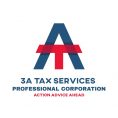Are you saving for a car or a dream vacation? A TFSA is a great way to save tax-free. The TFSA is a way for individuals who are 18 and older and have a valid social insurance number (SIN) to save money and withdraw it tax-free throughout their lifetime.
Whether you already have a TFSA or are thinking about opening one soon, it is important to remember that overcontributing to your TFSA can result in a tax of 1% for every month that the excess contributions stay in your account(s).
Understanding your contribution room
There is a limit on how much you can put in your TFSA and that limit is made up of three things:
- the annual TFSA dollar limit (the TFSA dollar limit for 2024 is $7,000)
- any unused contribution room from previous years
- any withdrawals you made during the previous year (excluding direct transfers from another TFSA)
Here’s how to stay within your limit:
- Step 1: Check My Account for the TFSA limit for the year and your unused contribution room from the previous year.
- Step 2: Check your TFSA transactions with your financial institution to see how much you have already contributed this year. Remember that if you have more than one TFSA, your total contributions to all TFSAs will need to stay within your limit.
For more information, check out TFSA contributions.
Information source from Canada Revenue Agency (CRA)

